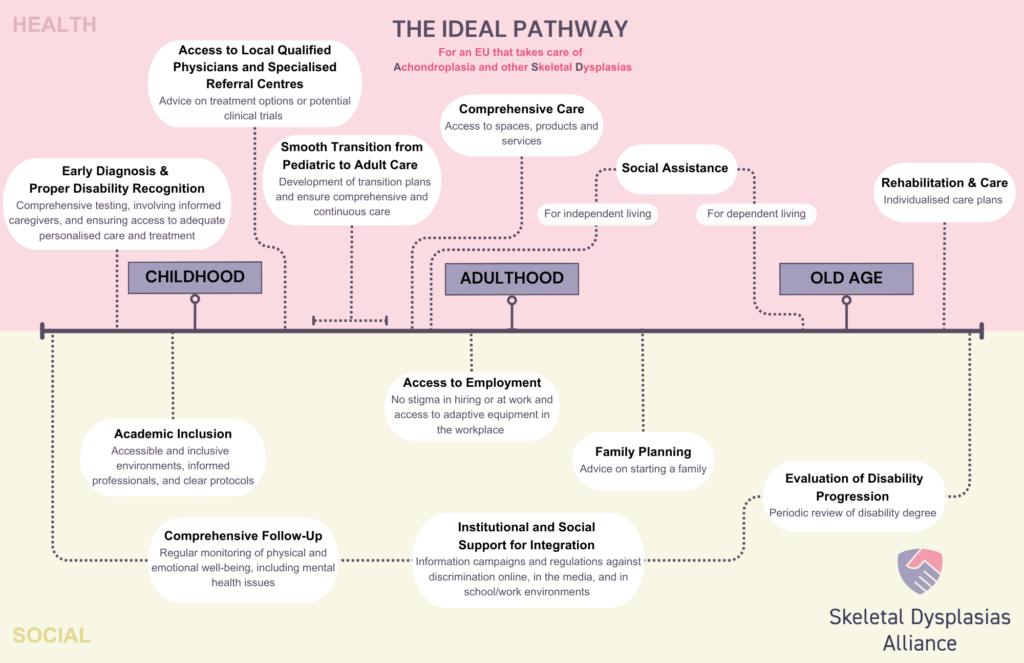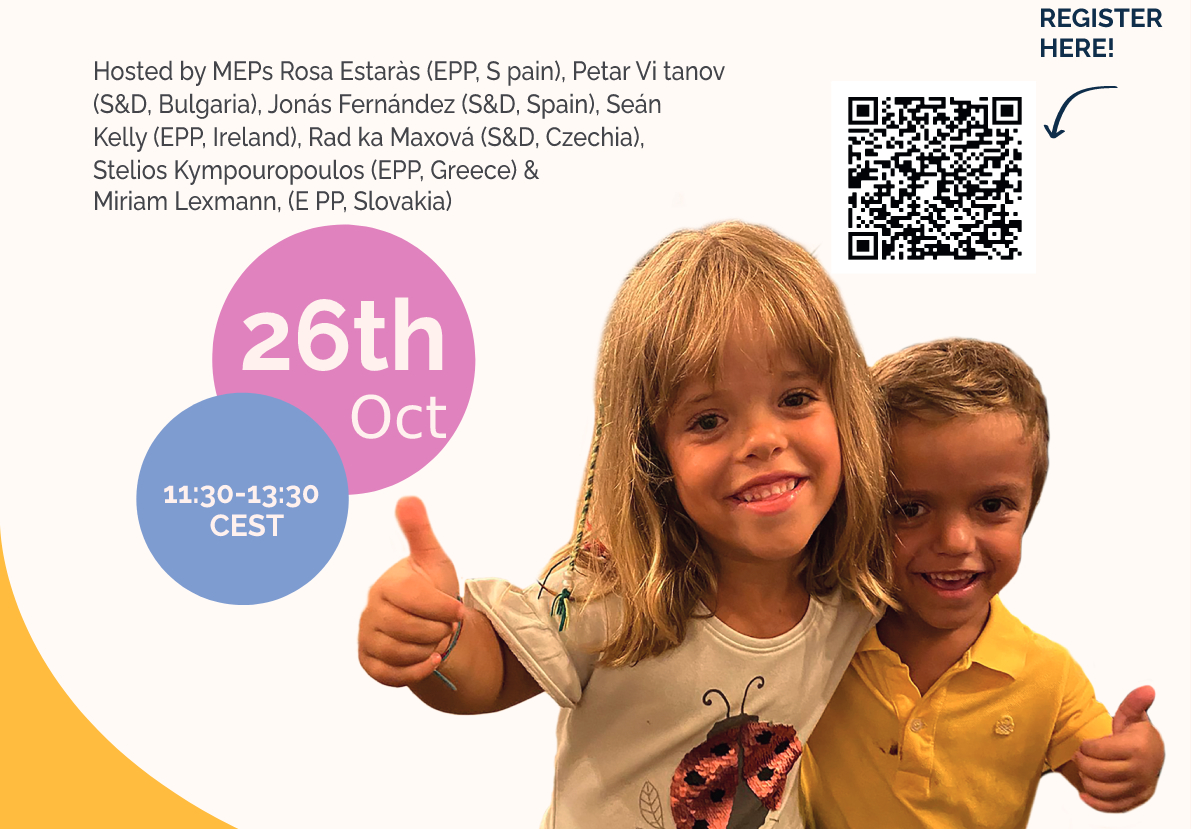On November 30, 2023, Skeletal Dysplasias Alliance Summit brought together representative groups of people with Skeletal Dysplasias (SD) from France (APPT), Spain (ALPE), the Netherlands (BVKM), Slovakia (Palcekovia), Bulgaria (LPOB), Finland (Lyhytkasvuiset) and the UK (FEST), as well as renowned experts, and members of the European Parliament and the Commission, to identify effective strategies that address the unmet needs of people with SD.
The overarching goal of the Summit this year was to present ‘The Ideal Pathway’, an outline of the life-long health and social needs of people with SD, with the intent of bringing political attention to the actions required to provide them with more dignity and a better quality of life. With the help of the representatives of the SD Alliance, who courageously shared their personal daily challenges, as well as the valuable knowledge from medical and social experts, members of the European Commission and Parliament were able to gain an unprecedented level of perspective into the lives of people with SD. This marks an important step forward in our journey towards integrating SD into EU frameworks for health, social, and mobility policies. Below is the pathway that we presented during the Summit; we believe it represents the fundamental needs that every single person with SD deserves.

A long stigmatized condition that presents challenges in both the social and health dimensions
Saulo Fernández, social psychology expert specialized in humiliation studies, emphasized how constructing a collective identity between people with SD is crucial for combatting social stigma and self-esteem issues, reaffirming the importance of advocacy groups such as the SD Alliance.
Moreover, health expert Luca Sangiorgi identified measures for improving the quality of life of patients, particularly pain-related aspects of the condition. He reinforced the importance of more studies in the realm of SD, referencing the utility of pilot questionnaires for collecting information.
From words to action: how to achieve effective equality
Notably, Alina Senn, policy officer for the Director General for Health and Food Safety of European Commission, pointed towards EU actions that would facilitate immediate progress for the SD Alliance. First, Senn highlighted that the urgent need for better access to reference centers and local specialized physicians across the EU can be addressed through the continued development of European Reference Networks (ERNs). Through virtual consultations, development of protocols, trainings, registries, shared patient information, and coordination, ERNs can ensure every patient has a right to specialist attention, no matter what EU country they reside in. Moreover, Senn stated the importance of EU registries for rare diseases, such as Orphanet, a gateway offering information on rare diseases, details about genes, medications, diagnostics, as well as care and treatment options. Lastly, referenced the value of research projects for new SD therapies, such as SYBIL, a five-year 12-million-euro project aiming to make breakthroughs in the treatment of rare and common skeletal diseases. Therefore, without research and innovation, we cannot effectively improve the overlooked health-related complications of SD that often make the condition painful, costly, and emotionally burdensome.
Regarding mobility issues, a main concern for people with SD, Andras Mogyoro, policy officer for the Director General for Transport and Mobility for the European Commission, supported the need for accessible transport with free assistance that is harmonized at the EU level. He also referenced two legislative proposals adopted by the Commission to equalize access to transport and provide transparency. Policy makers must grant SD the same consideration given to other vulnerable groups when drafting transport and mobility legislation. To do so, it is fundamental to recognize that the concept of accessibility varies among groups with different physical needs.
| What do We Do Now? SDA Group Representatives’ Calls to Action for the European Union: |
| 1. More investigation projects regarding innovative therapies for SD and measurement of their impact on the quality of life of patients |
| 2. A political initiative that targets social stigma and ridicule of SD in the media and the entertainment industry and provides awareness-raising campaigns in society |
| 3. Greater social, psychological, and material support that guarantees better access to dignified employment and equal opportunities |
The Summit served as a hub of knowledge exchange and inspiration, leaving participants with a renewed sense of purpose in pursuing better outcomes for those living with SD. If we aim to create a world where people with SD are given the same access and opportunities, it starts with creating these moments for collaboration between patients, experts, and policy makers.
On behalf of the Skeletal Dysplasias Alliance, we would like to thank everyone who attended the Summit, both in-person and online, as your collective support is the reason we are able to make more impact each year. Hopefully, our efforts today will bring a future where people with SD do not have to constantly ask to be more considered, respected, and assisted to live the life they deserve; a life with dignity.
